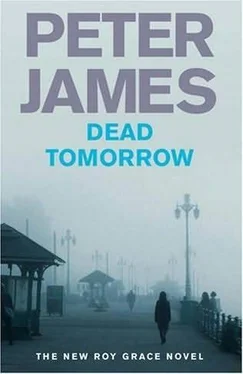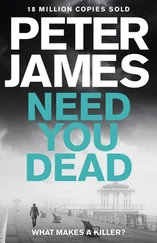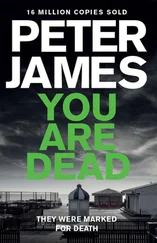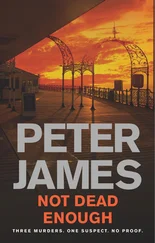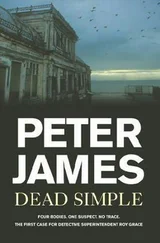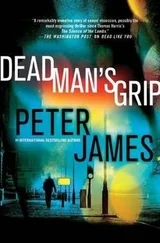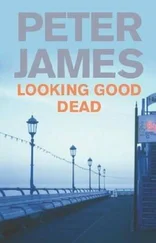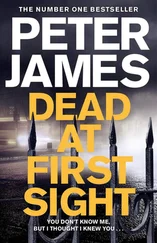Caitlin sat down in the opposite sofa. ‘I can only sort of remember.’
‘You were very young, then.’ Lynn turned back to Marlene Hartmann. ‘Then they stopped working. That was when she was twelve. She was diagnosed with a condition called PSC – primary sclerosing cholangitis. She spent almost a year in hospital – first down here, then in London, in the liver unit at the Royal South London. She had an operation to put stents inside her bile ducts.’
Lynn looked at her daughter for confirmation.
Caitlin nodded.
‘Can you understand what it is like for an active teenager to spend a year in a hospital ward?’
Marlene Hartmann smiled sympathetically at Caitlin. ‘I can imagine.’
Lynn shook her head. ‘No, I don’t think you can imagine what it is like in an English hospital, I really don’t think so. She was at the Royal South London, one of our top hospitals. At one point, because of overcrowding, they put her, a teenage girl, in a mixed ward. No television. Surrounded by deranged elderly people. She had to put up with confused women and men climbing into bed with her, day and night. She was in a terrible state. I used to go up and sit with her until they threw me out. I’d then sleep in the waiting room or in the corridor.’ She looked at Caitlin for corroboration. ‘Didn’t I, darling?’
‘It wasn’t that great in that ward,’ Caitlin confirmed, with a wistful smile.
‘When she came out, we tried everything. We went to healers, priests, tried colloidal silver, a blood transfusion, acupuncture, the lot. Nothing worked. My poor angel was like a little old person, shuffling along, falling over – weren’t you, darling? If it wasn’t for our GP, I don’t know what would have happened. He’s been a saint. Dr Ross Hunter. He found a new specialist who put Caitlin on a different regime of drugs, and he got Caitlin’s life back – for a while. She returned to school, was able to swim, play netball, and she took up music again, which had always been a big love of hers. She started playing the saxophone.’
Lynn drank some more of her coffee, then noticed, to her irritation, that Caitlin’s concentration had gone and she was texting on her phone.
‘Then about six months ago, everything went pear-shaped. She started finding her breathing difficult on the saxophone, didn’t you, darling?’
Caitlin raised her head, nodded, and returned to her texting.
‘Now the specialist has told us that she needs to have a transplant – as a matter of urgency. They found a matching donor and I took her up to the Royal for the operation a couple of days ago. But at the last minute they said there were problems with the donor liver – although they never explained exactly what those problems were – not to my satisfaction. Then we were told – or at least, it was hinted to us very strongly – that she was not being treated as a priority. Which meant that she could be in that group of 20 per cent of those waiting for a liver transplant who…’
She hesitated, looking at Caitlin. But Caitlin completed the sentence for her.
‘Who die before they get one, is what my mother is saying.’
Marlene Hartmann took Caitlin’s hand, and looked deeply into her eyes. ‘Caitlin, mein Liebling , please trust me. In today’s world, no person needs to die because they cannot get the organ they need. Look at me, OK?’ She tapped her chest and pouted her lips. ‘You see me?’
Caitlin nodded.
‘I had a daughter, Antje, who was thirteen, two years younger than you, and needed a liver transplant in order to live. It was not possible to find one. Antje died. On the day that I buried her I made a promise, that no one would ever die again, waiting for a liver transplant. Nor for a heart-lung transplant. Nor a kidney transplant either. That was when I set up my agency.’
Caitlin pushed her lips out, the way she always did when she agreed with something, and nodded approval.
‘Could you guarantee finding a liver for Caitlin?’ Lynn asked.
‘Natürlich! That is my business. I guarantee always to find a matching organ and to effect the transplant within one week. In ten years I have not had one failure. If you would like reassurance from my past clients, there are some who would be willing to contact you and tell you their experiences.’
‘One week – even though she’s an AB negative blood group?’
‘The blood group is not important, Mrs Beckett. Three thousand five hundred people die on the roads, around the world, every day. There will always be a matching donor somewhere.’
Lynn suddenly felt overwhelmed with relief. This woman seemed credible. Her years of experience in the world of debt collecting had taught her a lot about human nature. In particular, telling the genuine people from the bullshitters.
‘So what would be involved in finding a matching liver for my daughter?’
‘I have a worldwide network, Mrs Beckett.’ She paused to sip some of her tea. ‘It will not be a problem to find an accident victim, somewhere on this planet, who is a type match.’
Then Lynn asked the question she was dreading. ‘How much do you charge?’
‘The complete package, which includes all surgical fees for a senior transplant surgeon and a second surgeon, two anaesthetists, nursing staff, six months’ unlimited post-operative care, and all drugs, is -’ she shrugged, as if aware of the impact this was going to have – ‘three hundred thousand euros.’
Lynn gasped. ‘Three hundred thousand?’
Marlene Hartmann nodded.
‘That’s -’ Lynn did some quick mental arithmetic – ‘that’s about two hundred and fifty thousand pounds!’
Caitlin gave her mother a forget-it look.
Marlene Hartmann nodded. ‘Yes, that is about right.’
Lynn raised her hands in despair. ‘That – that’s a huge sum. Impossible – I mean, I just don’t have that kind of money.’
The German woman sipped her tea and said nothing.
Lynn’s eyes met her daughter’s, and she saw all the earlier hope in them had gone.
‘I – I had no idea. Is there any – any – payment plan that you offer?’
The broker opened her attaché case and pulled out a brown envelope, which she handed to Lynn.
‘This is my standard contract. I require half upfront and the balance immediately before the transplant takes place. It is not a big sum, Mrs Beckett. I never went to see anyone who could not raise this amount.’
Lynn shook her head in dismay. ‘So much. Why is it so much?’
‘I can go through the costs with you. You have to understand that a liver starts to deteriorate if it is more than half an hour out of a body. So the person this comes from will have to be flown here in an air ambulance on life support. As you know, it is illegal in this country to do this. All the medical team take a great risk, and of course we have to use top-quality people. There is one private clinic here in Sussex, but they are extremely expensive. I personally make very little out of this, after covering my costs. You could save some money by flying with your daughter to a country where legal issues are not such a problem. There is a clinic in Mumbai, in India, and also one in Bogotá, in Colombia. That would be perhaps fifty thousand euros less.’
‘But would we have to stay there for a long time?’
‘For some weeks, yes. Perhaps longer in case of complications, like an infection. Or rejection, of course. You must also think financially, beyond our six-month period, of the cost of anti-rejection drugs, which your daughter will have to take for life.’
Lynn shook her head, feeling in total despair.
‘I – I don’t want us to be somewhere we don’t know. And I have to work. But it’s impossible, anyway. I don’t have that kind of money.’
Читать дальше
